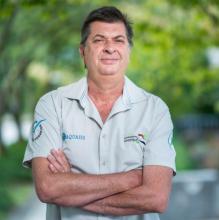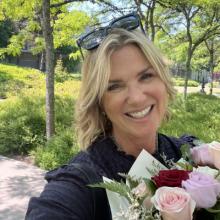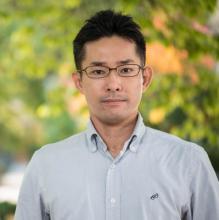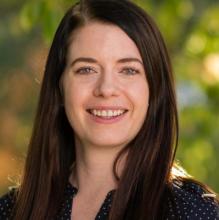A renowned environment and culture activist, Severn works closely with the elders and youth in BC's Haida Gwaii community to help the transmission of Xaayda Kil (a critically endangered Indigenous Canadian language) to future generations.
Research Description
On the west coast of Canada, the Haida language is at risk, with 23 elders in the village of Skidegate speaking the dialect of Xaayda kil (SHIP 2015). The goal of my research is to focus on transmission of this endangered language. The research project will focus on three levels: 1) an autoethnographical study of language learning of Xaayda kil of an individual (non-Haida) adult; 2) multigenerational language learning and teaching of families with young children; and 3) documenting the transition of responsibility for speaking the language in the community. This research is a direct response to the findings of the Truth and Reconciliation Commission; my intention is to contribute to the Haida Nation and our greater human family.
What does being a Public Scholar mean to you?
Being a public scholar means that the information and research done translates to important, relevant work in the public realm for the betterment of society.
In what ways do you think the PhD experience can be re-imagined with the Public Scholars Initiative?
The Public Scholars Initiative can be part of transforming the ivory tower into gardens on the ground.
How do you envision connecting your PhD work with broader career possibilities?
I believe that we are moving to a new era, the time of Reconciliation between non-indigenous and indigenous peoples in Canada. My research is a direct response to the findings of the Truth and Reconciliation Commission. I believe my research and work will be relevant in the coming years as language revitalization work is a key piece in healing our relationship. There is a lot of work to do.
How does your research engage with the larger community and social partners?
I will be conducting my language revitalization research with and for members of the Haida community on Haida Gwaii.
Why did you decide to pursue a graduate degree?
I want to expand my knowledge of best practices for how to revitalize indigenous languages, and on second language acquisition. Getting this critically endangered language to a 'safe place' is a huge challenge; we need to gather all the expertise and experience out there to inform our strategies for language revitalization on Haida Gwaii. This is why I have returned to school.
Why did you choose to come to British Columbia and study at UBC?
I wanted to study at UBC because of its wonderful resources at UBC: Dr. Pat Shaw and FNEL, and for the Museum of Anthropology, the X̱wi7x̱wa Library and the First Nations House of Learning. I came to UBC because it is endeavouring to embody and role model a positive relationship with Indigenous peoples in Canada.
The Public Scholars Initiative can be part of transforming the ivory tower into gardens on the ground".




